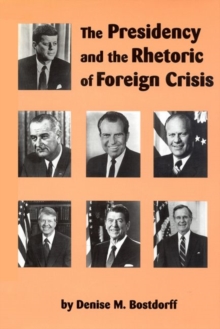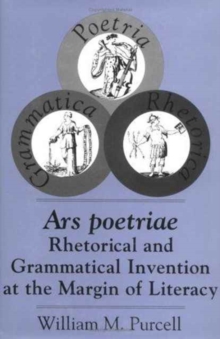
Rhetoric in Martial Deliberations and Decision Making : Cases and Consequences Hardback
by Ronald H. Carpenter
Part of the Studies in Rhetoric/Communication series
Hardback
- Information
Description
In this study of the discourse involved in martial deliberations, Ronald H.
Carpenter examines the rhetoric employed by naval and military commanders as they recommend specific tactics and strategies to peers as well as presidents.
Drawing on ideas of rhetorical thinking from Aristotle to Kenneth Burke, Carpenter identifies two concepts of particular importance to the military decision-making process: prudence and the representative anecdote.
Carpenter suggests that attention to these two concepts enables an understanding of how military commanders settle on a course of action and persuade others to support them.
Carpenter turns for illustration and insight to key case studies in which military commanders centered their rhetoric on representative anecdotes involving earlier campaigns.
He shows Douglas MacArthur persuading the Joint Chiefs of Staff to act on his plan for the Inchon attack; Maxwell Taylor reacting to Robert Kennedy's invocation of Pearl Harbor in deliberations during the Cuban Missile Crisis; Japanese and American commanders deliberating during the battles of Pearl Harbor and Midway; and Orde Wingate, Bull Halsey, and MacArthur debating strategy in the Pacific.
In all such deliberations the primary focus is the prudent course.
Carpenter suggests that the trend in contemporary society from authoritarianism toward management by persuasion, explanation, and expertise similarly permeates the military.
He contends that rhetorical proficiency in martial deliberations can be as important for a military leader as tactical and strategic expertise.
Information
-
Available to Order - This title is available to order, with delivery expected within 2 weeks
- Format:Hardback
- Pages:272 pages
- Publisher:University of South Carolina Press
- Publication Date:31/12/2004
- Category:
- ISBN:9781570035555
Information
-
Available to Order - This title is available to order, with delivery expected within 2 weeks
- Format:Hardback
- Pages:272 pages
- Publisher:University of South Carolina Press
- Publication Date:31/12/2004
- Category:
- ISBN:9781570035555



